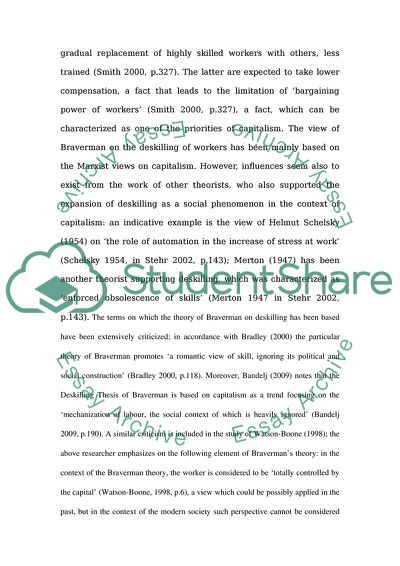Cite this document
(Deskilling Thesis of Braverman Essay Example | Topics and Well Written Essays - 2000 words - 1, n.d.)
Deskilling Thesis of Braverman Essay Example | Topics and Well Written Essays - 2000 words - 1. https://studentshare.org/sociology/1752206-has-the-arrival-of-the-knowledge-economy-destroyed-bravermans-deskilling-thesis
Deskilling Thesis of Braverman Essay Example | Topics and Well Written Essays - 2000 words - 1. https://studentshare.org/sociology/1752206-has-the-arrival-of-the-knowledge-economy-destroyed-bravermans-deskilling-thesis
(Deskilling Thesis of Braverman Essay Example | Topics and Well Written Essays - 2000 Words - 1)
Deskilling Thesis of Braverman Essay Example | Topics and Well Written Essays - 2000 Words - 1. https://studentshare.org/sociology/1752206-has-the-arrival-of-the-knowledge-economy-destroyed-bravermans-deskilling-thesis.
Deskilling Thesis of Braverman Essay Example | Topics and Well Written Essays - 2000 Words - 1. https://studentshare.org/sociology/1752206-has-the-arrival-of-the-knowledge-economy-destroyed-bravermans-deskilling-thesis.
“Deskilling Thesis of Braverman Essay Example | Topics and Well Written Essays - 2000 Words - 1”. https://studentshare.org/sociology/1752206-has-the-arrival-of-the-knowledge-economy-destroyed-bravermans-deskilling-thesis.


